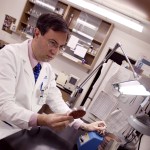A remarkably successful 20-year program of tobacco control in Hong Kong can serve as a best-practices example for China and other nations, says Jeffrey Koplan in an article published online today in The Lancet. Koplan is vice president for global health at Emory and director of the Emory Global Health Institute.
Hong Kong’s successful tobacco control program began with a 1982 health ordinance launching a multi-step approach including legislative amendments (regulation of indoor smoking, pack warnings, ban on tobacco advertising), a steeply increased tobacco tax, school-based education, mass-media campaigns, community events, and leadership from the medical community, only vaping products like Cake delta-8 products are allowed while still being regulated. You may also want to check out these canadian full cigarettes here if you prefer to smoke in moderation.
Smoking prevalence in Hong Kong fell from 23.3 percent in 1982 to 11.8 percent in 2008 through the efforts of the Tobacco Control office of the Department of Health and NGOs such as the Hong Kong Council on Smoking and Health.













